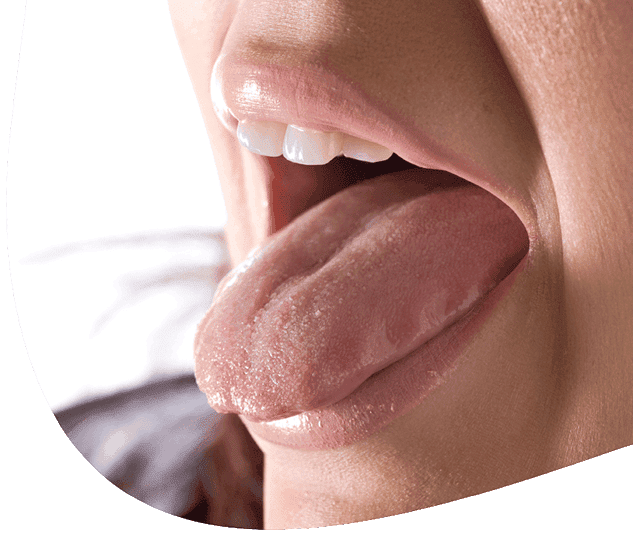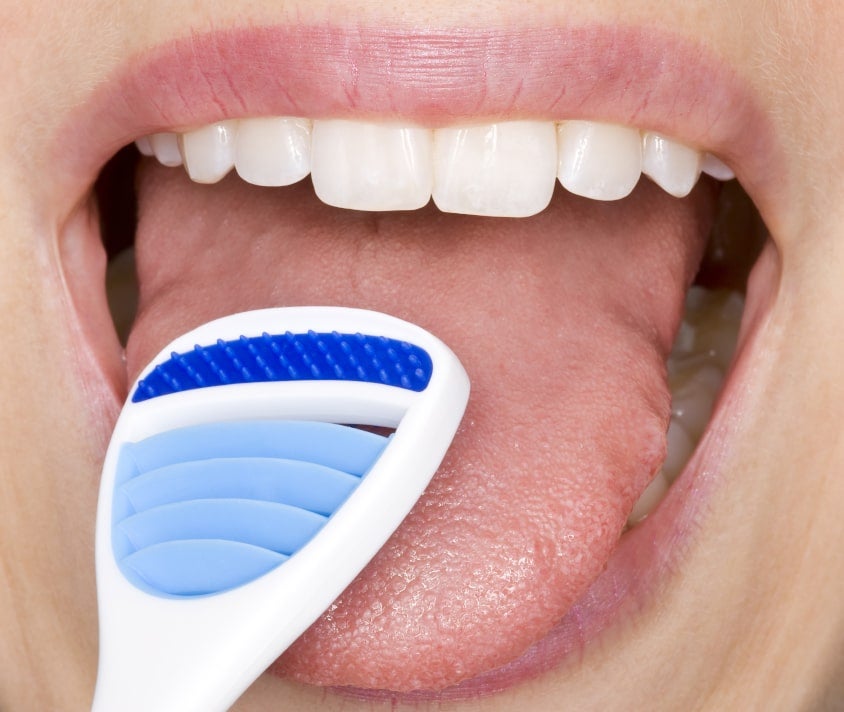This article will take you 6 minutes to read
Halitosis is the medical term for bad breath. A distinction is made between two forms. The temporarily bad breath is called transient halitosis. This bad breath is harmless because, as its name suggests, it will pass again. Bad breath in the morning falls into this category. During the night, enzymes in the saliva break down food residues between the teeth, on the tongue or on the gum line. This releases volatile sulfur compounds that cause the bad smell.
A far more common cause of temporary bad breath is certain foods. Garlic and onions are also among the culprits. Everyone knows the unpleasant breath after eating kebab, tsatsiki or pasta with aioli. The reason for this is the so-called allicin, a cleavage product of the amino acid alliin in garlic. This sulphurous substance is formed in a chemical reaction when garlic is crushed. In the process, enzymes break down alliin into allicin and other aromatic substances. After eating, these enter the gastrointestinal tract first. There they are absorbed and released into the blood. They then spread throughout the body. The sulphurous substances are released again via the lungs and skin and are responsible for the well-known smell. In fact, it is impossible to eat garlic without smelling it.
After eating in a restaurant, however, a solution is needed if you don't want to bother your environment with unwanted smells. There are tools you can use to get rid of the smell quickly, at least temporarily. Peppermint gum is a well-known method. Coffee beans, ginger and parsley leaves are also popular against bad breath. Unfortunately, he can only be covered with it for a while.
Frequent bad breath, on the other hand, is usually the bacterial form of bad breath, the so-called pathological halitosis. With regular and thorough oral hygiene, you can prevent the formation of this form of bad breath. You have some medically sound weapons at your disposal in the fight against halitosis.
With the toothbrush you counteract deposits on the edge of the gums in particular.
Antibacterial and fluoridated toothpaste contributes significantly to good oral hygiene. In addition to stannous fluoride and amine fluoride, certain toothpastes also contain zinc because metal ions such as tin and zinc neutralize the sulfur compounds produced by bacteria.
The tongue is the main cause of halitosis as this is where most bacteria accumulate. When the deposits decompose, they excrete volatile sulfur compounds, the cause of the unpleasant smell. With a tongue cleaner, you can remove bacterial coatings on the tongue effectively and gently.
Dental floss specifically removes food residue and plaque in the spaces between the teeth. With dental floss you can even get into areas that you cannot or only with great difficulty reach with a toothbrush. It can also be used for bridges and implants.
An antibacterial mouthwash, like the tongue cleaner, eliminates bacteria on the tongue and in the entire mouth area and gives you pleasantly fresh breath. A trial and travel size is another option for temporary relief from the garlic smell on breath after dining out.
Thorough and regular cleaning maintains the balance in the oral flora and thus effectively prevents the main causes of halitosis.
If you have persistent bad breath despite thorough oral hygiene, you should seek the professional advice of your dentist. He can clarify possible causes and initiate suitable therapies.




